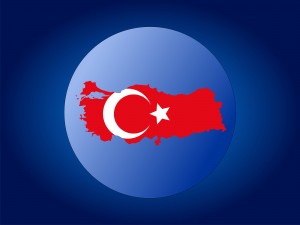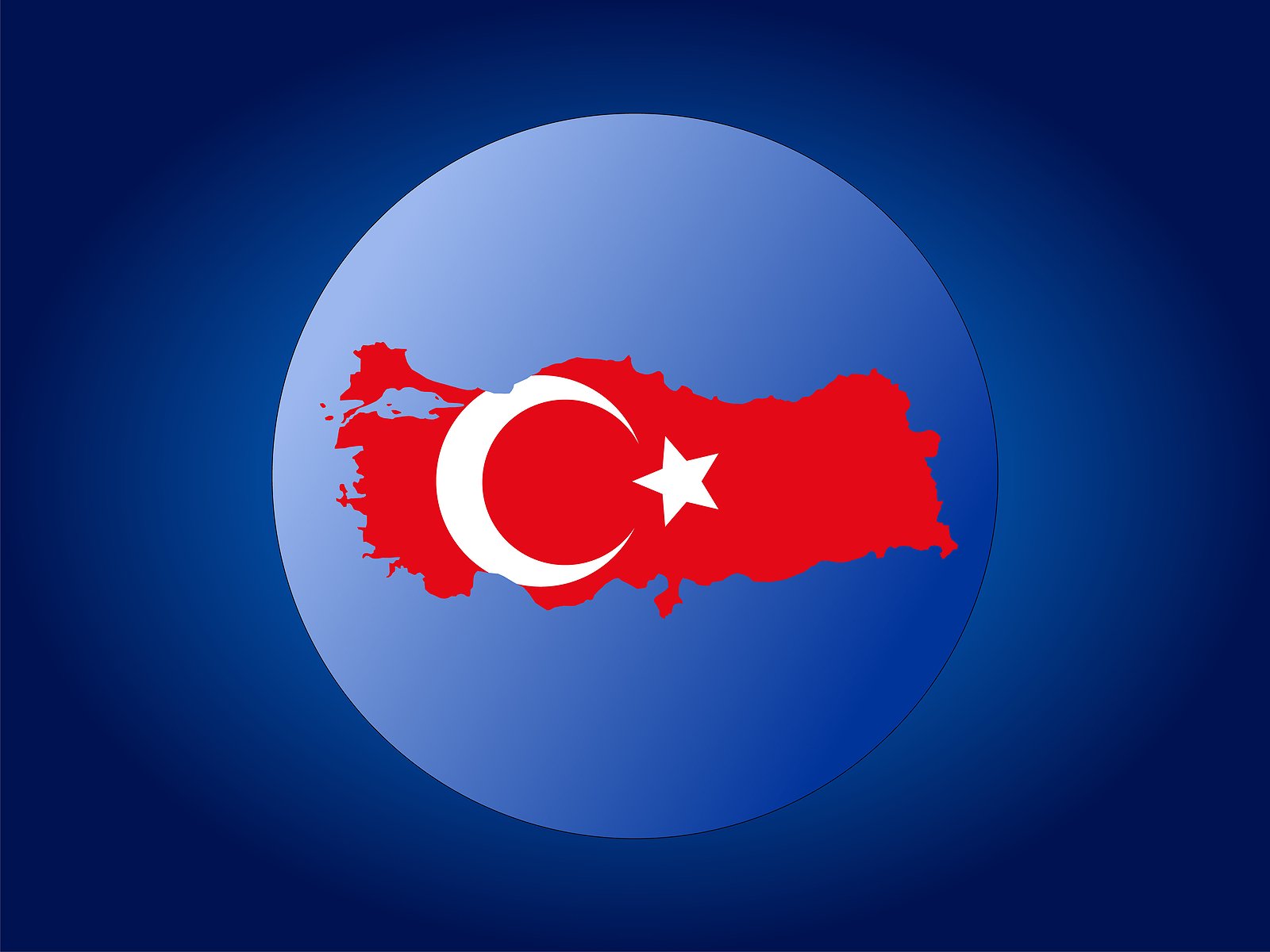10/12/11 by Richard Weitz
Second Line of Defense was invited to send a representative on a study trip to Turkey for U.S. foreign policy specialists. The trip, which is occuring from October 7-14, included visits to Ankara, Hatay, and Istanbul and meetings with a range of government officials, academic and think tank experts, and Turkish business leaders.
The Confederation of Businessmen and Industrialists of Turkey (TUSKON) was the trip sponsor. TUSKON is an umbrella organization for 7 regional federations that include 151 Turkish business associations with more than 35,000 business members throughout Turkey. TUSKON has offices in Washington, DC, Brussels, Moscow, and other major foreign cities. In addition to sponsoring annual study trips for U.S. foreign policy experts to Turkey, TUSKON organizes “Foreign Trade Bridge” programs that bring thousands of foreign business people to Turkey to meet with local entrepreneurs, generating billions of dollars of trade.

One priority for these business match-making summits and other TUSKON activities is to increase the volume of U.S. businesses in Turkey. The percentage of U.S. trade or direct investment in Turkey has declined steadily over the years due to much more rapid growth in Turkey’s business connections with other countries. Every year TUSKON sends business delegations to several U.S. cities in the hope of catalyzing profitable contacts.
Turkey has also become an important country for U.S. national security analysts. It has a population of almost 80 million people and is located at the crossroads of Europe, Asia, and the Middle East. For decades the Republic of Turkey loyally aligned its foreign and defense policies with those of the United States and its other NATO allies. But since the end of the Cold War, the country has sought to develop new partnerships while calling into question old ones, such as with Israel.
The “Whither Turkey” question has assumed elevated prominence among U.S. and NATO analysts pondering to what extent Turkey will remain tightly linked to NATO, will move northward toward Russia, will attempt to regain influence among the Turkic republics of Central Asia (possibly to include building security ties with China and the Shanghai Cooperation Organization), or will turn southward to identify more with the other Muslim Majority countries of the Middle East.
The recurring message we received in Turkey was that Turks wanted to develop ties in all directions, and considered these ties non-exclusive. In fact, many Turks stressed that they saw their country as a bridge among these blocs and civilizations. For example, they stressed their newfound commitment to convey Western liberal democratic values to the newly emerging democracies that are slowly displacing the traditionally authoritarian countries of the Middle East. Still, it was clear that one reason Turkey was seeking new partnerships was that many Turkish national security experts no longer believe they can assure their country’s security through alignment with the United States.
This concern was most evident during our meetings at the Wise Men Center For Strategic Studies (BILGESAM) in Istanbul, our first stop in Turkey. BILGESAM was founded to develop policy options for national leaders as well as to train junior staff to assume policy execution positions in government. It is an independent and non-partisan research organization whose members include some of Turkey’s most experienced former diplomats and military officers as well as current diplomats. BILGESAM’s three main areas of research include global studies (which include the policies of the United States, Russia, and China); regional studies (which address issues related to Central Asia, the Middle East, the Balkans, and other geographic regions); and functional studies (such as the international economy or energy security issues).
In addition to a quarterly journal, recent BILGESAM publications include reports on Turkish-Armenian relations or how the U.S. military withdrawal from Iraq might affect Turkish security. It employs an interdisciplinary perspective to analyze topics for different sponsors. Many of its studies aim to provide Turkish decision makers with practical policy options and recommendations. BILGESAM also seeks to provide Turkey with an independent means to analyze international developments rather than rely on NATO or other foreign-based institutions.
During our hour-long discussion, their staff spent much time complaining that the United States imposed excessive limits on transfering defense technology to Turkey. As a result, while Turkey would often prefer to buy U.S. military systems, the country has increasingly been either buying from other countries or developing indigenous substitutes for these systems.
Before 2004, the share of domestically produced technology in Turkey’s military systems was between 20-25 percent. That year, the government decided to make a comprehensive and sustained effort to increase the proportion of Turkey’s military technology that was produced at home. The Turkish Armed Forces identified 11 Technology Activity Fields and 109 Technology Areas to focus its development efforts.
Since 2004, Turkey has increased the share of its military equipment that was domestically produced to more than 60 percent. Still, Turkish officials are dissatisfied that many of these are low-technology items. And indigenous systems still often cost more than equivalent foreign systems, which means that the Turkish arms industry is frequently unable to compete on international markets.
Ironically, the day of our meeting the local newspaper had a front-page article indicating that the United States had decided to sell Turkey three AH-1W Super Cobra attack helicopters. And Turkish Prime Minister Recep Tayyip Erdoğan recently announced that Turkey would purchase MQ-1 Predator unmanned aerial vehicles from the United States. Although Turkey had previously acquired drones from Israel, Turkish-Israeli relations have been on a downward spiral in recent years, leading the Turkish government for permi had asked for both unarmed and armed versions of the Predator nearly three years ago. The MQ-1 Predator is mainly the surveillance version, and the MQ-9 Reaper is the armed version.
The U.S. extensively uses the Reaper in attacking al-Qaeda, the Taliban and other terrorist and insurgent groups in Afghanistan. The U.S. has sold the Reaper just to Britain for use in Afghanistan.
Past discussions of sales of attack helicopters to Turkey have proved controversial since they have been used to attack anti-Turkish Kurdish insurgents. But the outlawed Kurdistan Workers’ Party (PKK) terrorist group lost international support in the 1990s so Turkey has found it easier to buy counterinsurgency weapons. The United States sold Turkey 10 AH-1W Super Cobras in the 1990s. They have proved powerful weapons against the PKK insurgents, who recently increased their operations.
Turkey also possesses dozens of earlier model U.S. attack helicopters, but these one-engine planes have found it hard to operate in the challenging terrain of northern Iraq.
Due to crashes and other problem Turkey’s fleet of operational helicopters has declined to six, so Turkey has been pressing the United States to provide replacements. Washington had resisted since its own copter fleet was heavily engaged in Iraq and Afghanistan.
Now with the U.S. military drawdown in both countries and the aspirations to reset the U.S. Marine Corps aviation component in coming years–including with the new more advanced AH-1Z helicopter, which the Marines began receiving earlier this year, the Marine Corps is transferring the three AH-1Ws to the Turkish military.
This may be the last Turkish purchase of a U.S.-made attack helicopter for a while. Bell Helicopter Textron tried to sell Turkey its more advanced AH-1Z, the latest member of the Cobra family and actually won Turkey’s tender for a new attack helicopter in 2002. Despite three years of negotiations, Turkey’s Undersecretariat for Defense Industries (SSM), the coutry’s military procurement agency, and Bell proved unable to reach agreement on the appropriate price and features for the Turkish version.
The SSM then canceled the first tender and opened a new bidding process. U.S. manufacturers declined to participate in that second tender, which was eventually won by AgustaWestland of Italy. It offered the T-129, a Turkish version of the A-129 Mangusta International., and co-production with Turkish Aerospace Industries (TAI). Deliveries of a planned 59 T-129s for the Turkish Army are scheduled to begin late next year.
AgustaWestland and TAI are considering how to sell the T-129 to other countries. Even so, TAI is trying to use the technology transfers it is receiving through this foreign co-production agreement and other contracts to manufacture its own attack helicopters in the future.
The Turkish media said that Turkey has received the AH-1W Super Cobra helicopters as a “reward” for agreeing to host an early warning radar for NATO’s developing ballistic missile defense system (BMD). The Turkish Foreign Ministry announced on September 14 that the radar would be located at a military base in Kürecik in the eastern province of Malatya. Turkish defense officials have said that a base in Germany would oversee the radar’s operations. A Turkish general would serve there along with other NATO military personnel.
The United States has been lobbying Ankara to participate in its BMD program within a NATO framework, while Iran and Russia have been pressing Turkey to keep its distance from Washington’s BMD plans.
Turkish officials have sought to balance these competing forces while leveraging them to advance Turkey’s own security interests. For example, while welcoming the transfer of the three helicopters, a Turkish military analyst quoted in the story said Turkey expected more. “All this is valuable, but is still a small price for taking the risk of hosting the NATO radar. Iran already has expressed its ire against Turkey. So something more is expected to come from the United States, probably in terms of equipment and in political support.”


